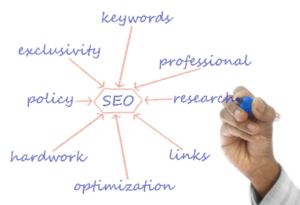Search engines are complex systems that determine what results to display when someone submits a search query, considering factors like previous searches, user settings and location. SEO attempts to make websites more visible on search engine results pages so they receive increased traffic.
Keyword research
 Keyword research is at the core of any successful SEO strategy. It allows businesses to locate and rank for keywords that are both targeted towards their audience and have high value, as well as provide invaluable insight into the competition – providing vital clues as to how well their organisation is performing and where improvement may be necessary. Learn from an SEO company Adelaide.
Keyword research is at the core of any successful SEO strategy. It allows businesses to locate and rank for keywords that are both targeted towards their audience and have high value, as well as provide invaluable insight into the competition – providing vital clues as to how well their organisation is performing and where improvement may be necessary. Learn from an SEO company Adelaide.
Keyword research tools exist for almost every purpose imaginable, yet all generally work similarly. They all start by taking an initial seed keyword and providing search ideas based on relevance, competitiveness and other metrics; perhaps the most widely known tool being Google Keyword Planner, often used for paid ads campaigns but extremely beneficial when doing organic SEO.
You must consider searchers’ intent when selecting keywords as part of your keyword research. Selecting an inappropriate phrase could result in your website not appearing among the top results for that query – for instance, targeting CMS solutions meant for schools instead of targeting developers will result in less traffic coming through that search term.
Starting your keyword research off right requires compiling a list of general topics relevant to your business – these seed keywords serve as a basis for more in-depth investigation and should serve as a starting point. Once this step has been accomplished, begin delving deeper.
On-page optimisation
On-page SEO refers to any changes on your site that take place without external influence, including title tags and meta descriptions that fall within your control; internal links; URLs; as well as making sure content meets user intent – these elements all play an integral part in on-page optimisation allowing your content to rank higher in search engine results pages (SERPs) and increasing website traffic.
On-page optimisation is the foundation of any SEO campaign. It aims to ensure the correct keywords are utilised throughout a website and that user navigation is simple. One effective method of on-page optimisation is creating high-quality content tailored specifically for your audience, improving rankings while making attracting inbound links easier.
On-page optimisation includes three elements, including pre-click, click-through and post-click optimisation. Pre-click optimisation refers to elements that appear before someone clicks your listing on SERP, such as title tags and URLs; meta description tags can help encourage searchers to click your listing as another form of pre-click optimisation.
Click-through optimisation refers to the contents of a web page once someone clicks it, such as text and images on it. This aspect is crucial as it signals to Google that your page is relevant for their search query.
Link building
Link building is vital to SEO, showing search engines that your content is relevant and appropriate. Unfortunately, link acquisition can be daunting for marketers; luckily, some tools can make this task simpler; these can assist with building links related to your content that enhance its quality while helping prevent spamming practices that damage rankings.
One of the primary components of Google’s ranking algorithm is backlinks, both their number and quality. While PageRank was previously determined solely on this criterion, nowadays, Google considers many other factors as well, such as topic relevance of websites’ backlinks, anchor text quality, and domain authority when ranking sites.
Earning external links is an invaluable way of demonstrating your expertise on any given subject and will ensure that your search engine result pages (SERPs) feature your content prominently. Google Analytics makes it easy to measure the success of your SEO efforts by showing how much traffic comes in from SEO efforts and which pages perform the best.
Creating an effective link-building strategy can take time and dedication but will pay dividends. Remember that shortcuts such as buying links could violate Google’s guidelines and incur penalties from them.
Content creation
Given the four billion Google searches conducted daily, keeping user intent in mind when creating content is vital. People search Google for answers to their queries – where to visit in Rome or how to treat a hangover – which company websites provide through content that serves two functions – helping customers solve their issues while advertising unique solutions provided by businesses.
